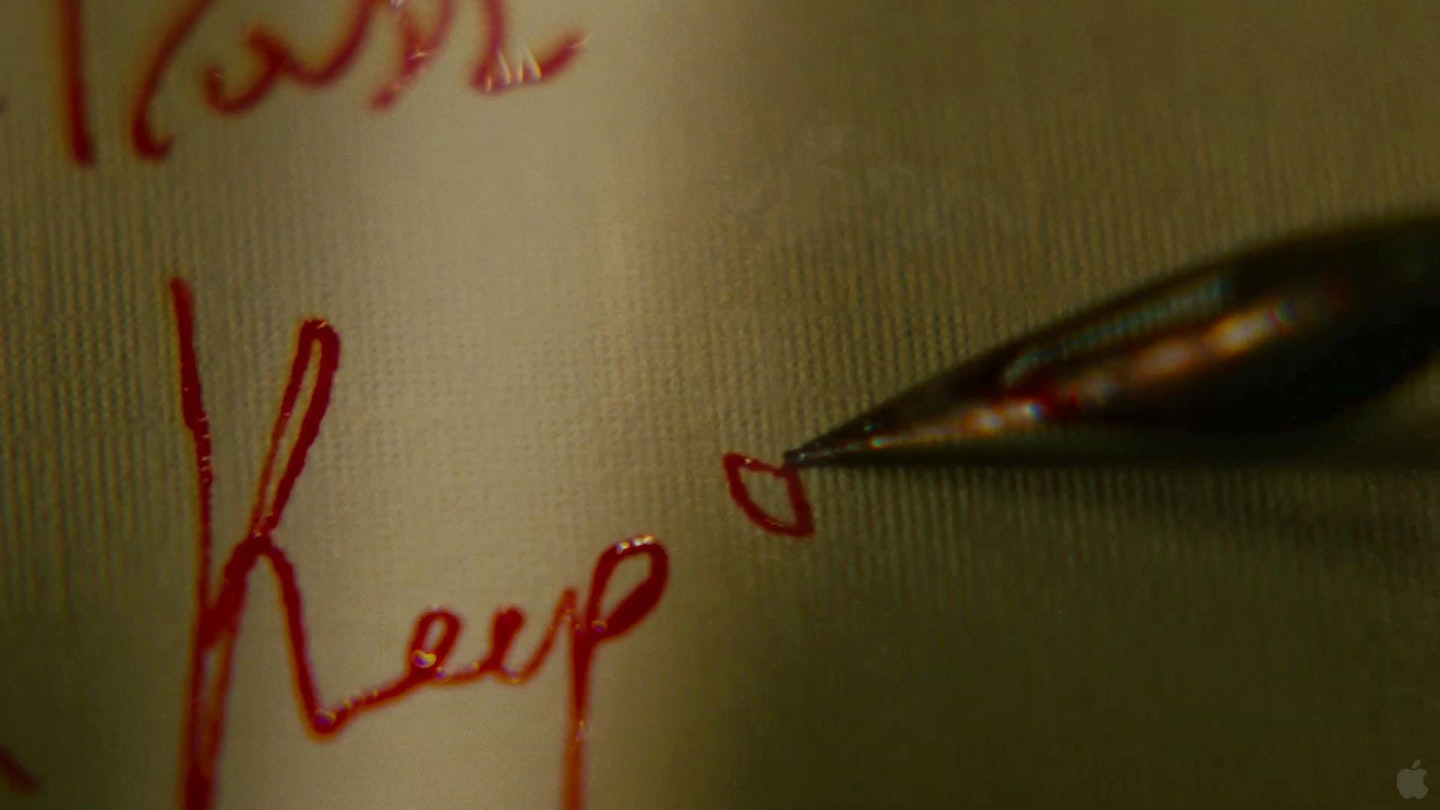Now The Artist has given everyone a grounding in the joys of silent film – intertitles, flapper girls, cute dogs and all – the next step has to be to watch loads more silent films. These days it’s easily done, with YouTube brimming with them and silent classics regularly getting a lick of restorers’ paint or a new score to revive them. This week, thanks to the BFI and Nitin Sawhney, Alfred Hitchcock’s The Lodger gets both. As a companion to Empire’s guide to silent movies, here’s a look at that and some of the others to search out.
Composer: Nitin Sawhney
Year: 2012
Arguably the first quote-unquote proper Hitchcock film on the master’s CV, The Lodger created a template for many of the things moviegoers would come to know and love about his thrillers. There’s the Blonde, the Murderer, the Cameo, the stylised sets (here with a touch of the Murnaus) and, most of all, the Wrong Man (Ivor Novello) stuck amid a whole mess of misfortune. Composer Nitin Sawhney – fittingly, a one-time Novello Award nominee – enhances all these elements with his new score, toploading it with soaring romantic cues and moments of jarring tension. There’s even a nod or two to Bernard Herrmann to keep the hardcore happy.
Composers: Silent Orchestra
Year: 2001
Having previously turned their ears to F.W. Murnau’s and Charles Bryant’s Salome, composers Carlos Garza and Rich O'Meara went Method with their score for Murnau’s great monster mash, watching it more than 100 times and then cranking out a partly improvised soundtrack to accompany Count Orlok’s terrifying European jaunt. The Count’s theme, built around a minor key cello motif, delivers enough brooding intensity to impress even the wobbly-fingered one himself. We’re assuming they used vamplifiers to do this.
Composers: The Cinematic Orchestra
Year: 2003
The Ninja Tune outfit originally gave Sight & Sound’s newly crowned eighth Greatest Film Of All Time its dazzling six-part score back in 2001. The organisers of the Porto European City of Culture festival requested a one-off performance and the group delivered something so good, so acutely pitched to the mood of Dziga Vertov’s celebration of Soviet-ness, that they ended up recording it as an album, touring it and seeing it accompany a new DVD of the film. That worked out nicely, then.
Composers: Pet Shop Boys
Year: 2004
Another commissioned piece, here by London’s ICA, and another one-off gig, this time in front of 25,000 people in Trafalgar Square, saw everyone’s favourite post-Constructivist popsters Pet Shop Boys meet everyone’s favourite actual Constructivist, Sergei Eisenstein, in a marriage of ‘20s montage and noughties synths. “We looked at it as though it were 11 pieces of music,” explained Neil Tennant in The Guardian, “and tried to develop themes that worked within those pieces, synching into the different moods of each scene.”
Composer: Philip Glass
Year: 1999
Bela Lugosi’s calamitous Count originally went about his vampirey business with little music accompaniment, save a few bars of Tchaikovsky's Swan Lake, in Tod Browning’s silent horror. That all changed when Universal commissioned Philip Glass to pen a new score to premiere at The Brooklyn Academy Of Music in 1999.
“I felt the score needed to evoke the feeling of the world of the 19th century”, recalls Glass, “and for that reason I decided a string quartet would be the most evocative and effective. I wanted to stay away from the obvious effects associated with horror films.” Thanks to Glass, Dracula now has music to bite girls to.
Composer: Giorgio Moroder
Year: 1984
Music is a subjective art like any other, so before Fritz Lang purists unleash giant Molochs in rage, please bear in mind that Giorgio Moroder tackled his alternative Metropolis edit and soundtrack with the best intentions and full respect for the original. After all, Fritz Lang had gone searching for a future hell. Moroder helpfully found it for him: it was called the ‘80s.
Composers: Air
Year: 2012
Fittingly for a group who named their first album ‘Moon Safari’, lunar-loving French band Air added to their previous soundtrack work on The Virgin Suicides with an entirely new one for Georges Méliès’ historic sci-fi. The colour restoration now has Moog-fuelled melodies to make it just that tiny bit trippier – and it was pretty trippy to begin with. “We wanted to give a very surrealistic touch to the movie,” says the group’s Jean-Benoît Dunckel. “Music has to make you leave the Earth.” Space-suits tailcoats and top hats on, everyone!
Composer: Carl Davis
Year: 1980
Carmine ‘father of Francis’ Coppola has also penned an orchestral score for Abel Gance’s silent biopic, but the version to hunt down is by virtuoso composer Carl Davis had initially shrugged off the allure of Hollywood scoring work but gradually softened when his work Hollywood: A Celebration Of The American Silent Film, a 13-part TV series, paired him with documentary maker Kevin Brownlow. On Brownlow’s suggestion the pair pooled resources to re-score Gance’s great film of the pocket-sized powerhouse. The result saw Davis drawing heavily on Beethoven’s Eroica symphony and other pre-1810 classical themes and very lightly on ABBA and 'Waterloo'.
